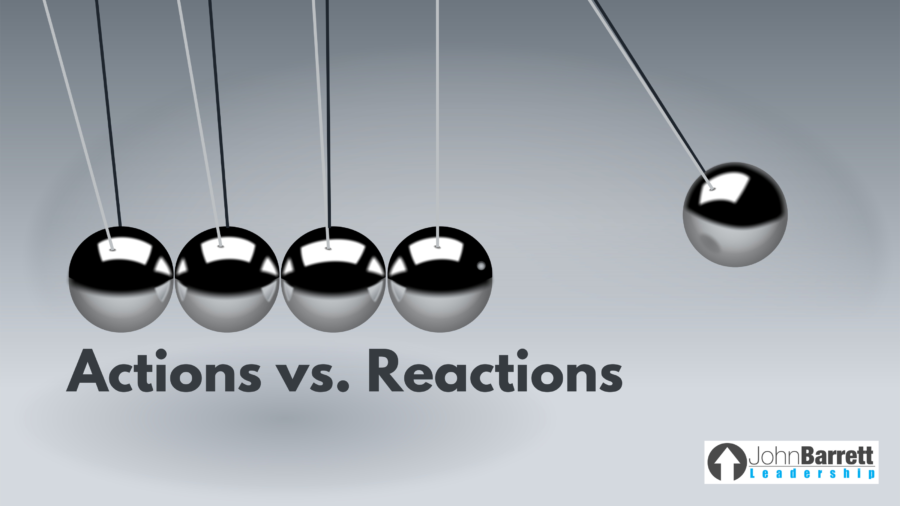Actions vs. Reactions
As leaders, we are always looking for the most effective ways to motivate our teams and get the best out of them. But, no matter how inspiring or motivational our words may be, in the end, it is often said that actions speak louder than words. But when it comes to leadership, there is an even more telling factor: reactions.
Actions speak louder than words, but reactions speak louder than both.
It’s essential that today’s leaders recognize this unique fact and are mindful of their behaviors. How you react in any situation reveals more about your leadership than anything else. For example, I see leaders always saying to their team that they don’t fear failure, but when someone on their team actually fails, they freak out and get upset. Reactions always trump anything you’ve previously claimed. People don’t go by what you’ve said but by how you react. The culture of an organization or team hinges on how people behave, not just on what they say.
You have to ask yourself, are my reactions aligning with my claims?
Here are three ways you can start to create better reactions as a leader:
1) Slow Down
It can be easy to rush ahead whenever a problem arises. We like to think of ourselves as decisive and capable—ready to take on anything that comes our way. But while taking the initiative is important, we must remember an essential truth: sometimes, the best course of action is simply being patient and calm. As difficult as it might be in times of urgency, pausing for a moment can make all the difference in handling problems effectively. The moments when things seem most chaotic are often when we’re most tempted to act impulsively—but that’s exactly why we should strive to keep level-headed and consider our reactions if we want better results.
2) Ask Questions
As a leader, you know how important it is to constantly seek understanding and make informed decisions. After all, knowledge can be power. However, gaining insight and understanding isn’t always easy. This is why good leaders turn to the power of asking great questions. Questions are the best tool for seeking insight and driving understanding. Stephen R. Covey taught us in the 5th habit of 7 Habits of Highly Effective People…Seek first to understand, then to be understood. So always lead with questions and keep yourself genuinely curious before having a knee-jerk reaction.
3) Be Objective
The ability to remain objective in any situation is a skill that all leaders should strive for. Sadly, too many of us default to letting our emotions take control, which can often cloud our judgment and lead to very poor decisions. As leaders, it’s essential that we check our own feelings at the door and become masters of objectivity if we want to be successful. Not only will this help us make more informed decisions, but it also shows controlled reactions. Being an effective leader isn’t always easy, but managing your emotions helps make it easier. Always ask yourself, “What would a great leader do in this situation?” This will help you remove personal emotions and figure out objective responses.”
Remember, it’s not your actions that make the difference, but your reactions.









